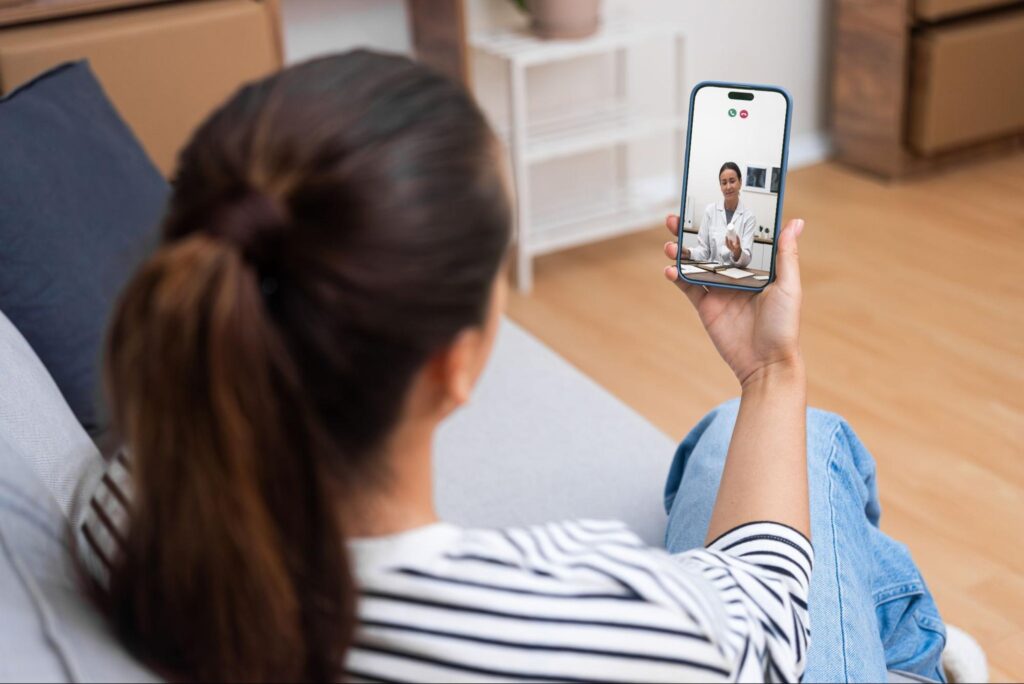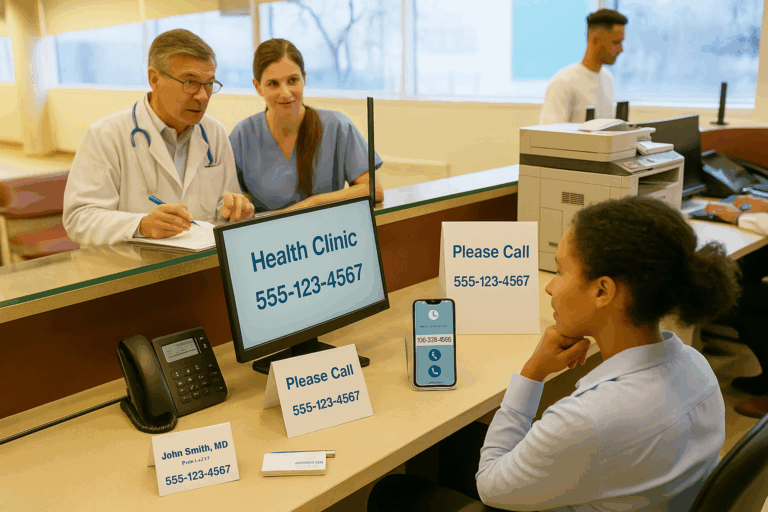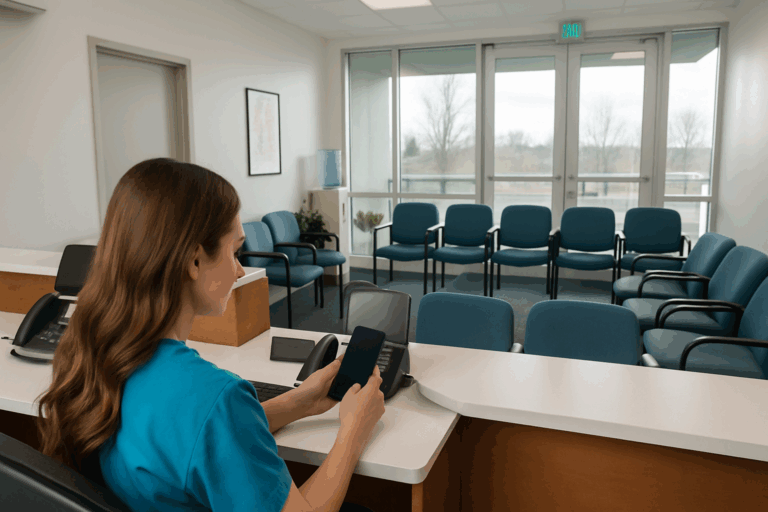It seems like a new technology product is released every few weeks. From fitness-tracking rings to modular smartphones and deepfake detection systems, companies continue to develop “smart” tools to handle even the most minor tasks.
Many of these innovations operate via smartphones, which 91 percent of Americans own. Smartphones are also increasingly used in healthcare, where more than 60 percent of patients use mobile health applications and other digital devices to manage their health.
Often called mHealth, mobile health enables individuals to measure health metrics, access medical data in real time, communicate with their providers, schedule doctor’s appointments, receive care virtually and complete check-in procedures. Over 350,000 healthcare apps are available on the global market, some of the most common of which include those for diabetes, pregnancy, weight loss and documentation of chronic illness symptoms.
Patient Perks
mHealth is a powerful tool for improving health outcomes by helping patients take control of their health and facilitating better communication with their providers. It allows patients to track and monitor their medical conditions and be proactive about potential treatments. Providing patients with fast access to essential health information can help reduce unnecessary costs, such as those from avoidable hospital visits.
According to a survey, three-quarters of patients believe physicians who integrate mobile technology can provide a faster and more convenient experience. Fifty-seven percent prefer communicating with physicians and office staff through mobile apps rather than calling the doctor’s office directly. This is particularly beneficial for elderly patients who require constant support due to chronic conditions and cannot easily leave their homes.
Just how popular is mobile health? The global mHealth market is projected to grow to $249.05 billion by 2032.
How mHealth Assists Healthcare Providers
The benefits of mHealth extend beyond patients. Mobile health technology allows physicians to digitize their workflows, access patient data in real-time, and document directly at the point of care. It helps healthcare providers enhance the patient experience, improve population health, reduce the cost of care, and support the well-being of care teams.
According to the National Center for Biotechnology Information (NCBI), there are four categories of mHealth:
- Physiological monitoring: measuring, recording, and reporting physiological parameters such as heart rate and blood pressure.
- Activity and behavior monitoring: tracking movement, physical and social activity, and health-related behaviors such as eating habits and addictive behaviors.
- Information access: accessing health-related data (e.g., medical records, activity or behavior data) and decision-support tools.
- Telemedicine: communication between patients and caregivers and/or providers.
The Healthcare Information Management Systems Society (HIMSS) suggests that clinicians utilize mHealth tools to collect bedside data, monitor data from remote devices, transmit data and coordinate care continuity, conduct telemedicine visits, communicate with patients and integrate data into an electronic medical record (EMR). Improved quality and continuity of care are the top reasons for physician adoption of mobile health, but studies have found that using mHealth apps for patient-centered care can decrease the costs of care.
Roughly 93 percent of physicians believe mHealth apps can improve patients’ health. The technology is even helpful during the patient intake process by promoting streamlined registration and quicker and easier retrieval of completed patient forms, insurance verification and any additional components of their check-in process.
Equipping themselves with mobile health allows healthcare providers to bolster:
- Clinical decision support: evaluating and selecting the best apps to support clinical decisions
- Workflow efficiencies: using simpler, better and HIPAA-compliant mobile-enabled devices, services and software to optimize data retrieval, documentation and healthcare transactions
- Communication and coordination: appropriately connecting and sharing secured information among providers to better coordinate care
- Patient engagement: supporting population health, improving compliance and engaging patients in their care
How RingRx Enhances Mobile Health Services and Patient Experience
RingRx offers a comprehensive suite of services that empower healthcare providers to deliver a seamless, patient-centered experience, leveraging the full capabilities of mobile health.
Advanced Phone System Built for Healthcare
RingRx simplifies patient communication with its flexible and intuitive phone system. Whether on mobile or desk phones, our solution ensures that patients can always reach you. With features like customizable call routing and easy voicemail access, RingRx helps practices deliver reliable and efficient HIPAA-compliant services.
HIPAA-Compliant Communications
Patient confidentiality is paramount, and RingRx ensures that every call, text, and video consultation is fully HIPAA-compliant. Our platform is built with the highest security standards, ensuring patient data is always protected while enabling secure communication across mobile and desktop devices.
Virtual Receptionist and Call Routing
RingRx’s Virtual Receptionist and Ring Groups ensure patients are always directed to the right department, improving workflow and reducing missed calls. This streamlined system helps providers meet patient needs quickly without compromising quality or efficiency.
Secure Texting and Video
RingRx enhances patient engagement by providing secure, unlimited texting options for patients and healthcare teams. Additionally, our video platform offers secure, HIPAA-compliant, easy, one-click consultations, allowing providers to reach more patients, especially in remote areas.
After Hours Support and Automated Outreach
RingRx’s OnCall system ensures continuous patient care by routing calls to the appropriate provider after hours. Additionally, our automated outreach services, including appointment reminders and marketing messages, help practices stay connected with patients and increase engagement.
By leveraging RingRx’s mobile health tools, healthcare providers can improve patient experience, streamline workflows, and create lasting patient relationships. Start your complimentary 14-day trial of RingRx today! Also, check out our whitepaper, “Mobile Health (mHealth) Technology: Promoting Improved Provider-Patient Communication.”




